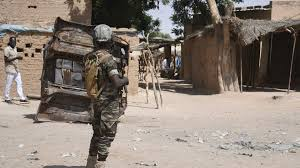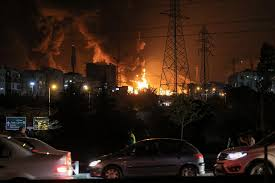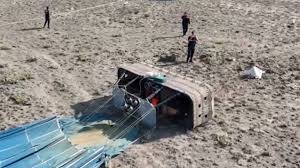Niger Under Siege: At Least Nine Killed in Latest Jihadist Attack, Escalating Regional Instability
Editor
Jun 16, 2025
min read
5 views

Niger is once again reeling from a brutal jihadist attack that claimed the lives of at least nine people, according to local sources and AFP reports on June 16, 2025. This latest incident, occurring in a region already plagued by chronic instability and extremist violence, underscores the escalating security crisis in the Sahel and the persistent threat posed by various armed groups operating across the West African nation.
Details of the attack remain sparse as of this report, but initial accounts indicate that armed militants, believed to be affiliated with either Islamic State in the Greater Sahara (ISGS) or Jama'at Nusrat al-Islam wal-Muslimin (JNIM), targeted a village in a remote area, leading to civilian casualties and widespread displacement. Such attacks often involve brutal killings, destruction of property, and abductions, aiming to destabilize communities and undermine governmental authority.
Niger, a vast and largely arid country, sits at the heart of the Sahel region, a flashpoint for extremist groups exploiting poverty, weak governance, and ethnic tensions. The country has been grappling with a dual insurgency: one in its western Tillabéri region, bordering Mali and Burkina Faso, where groups like ISGS are active, and another in the southeastern Diffa region, near the border with Nigeria, where Boko Haram and its splinter faction, Islamic State West Africa Province (ISWAP), pose a significant threat.
The security situation has deteriorated markedly in recent years, despite the presence of regional and international military forces. The withdrawal of French troops and a shift in alliances following a military coup in July 2023 have created a complex and volatile environment. The new military junta, the National Council for the Safeguarding of the Homeland (CNSP), has pledged to prioritize security but faces immense challenges in containing the widespread violence.
Humanitarian organizations are warning of a deepening crisis. Millions have been displaced internally and across borders, facing severe food insecurity and limited access to basic services. The violence disrupts agricultural activities, destroys livelihoods, and prevents children from attending school, perpetuating a cycle of poverty and vulnerability. Access for aid agencies is often restricted due to the insecurity, making it difficult to deliver essential assistance to affected populations.
Regional efforts to counter terrorism, such as the G5 Sahel Joint Force, have struggled with funding, logistical challenges, and coordination issues. The recent political instability, including a series of coups in Mali, Burkina Faso, and Niger, has further complicated regional security cooperation, leading to the formation of new alliances that could reshape counter-terrorism strategies.
Analysts suggest that the international community needs a renewed and comprehensive approach to the Sahel crisis, one that combines military efforts with robust development aid, good governance initiatives, and community-based peacebuilding programs. Without addressing the root causes of extremism—poverty, lack of opportunities, and perceived injustice—military interventions alone are unlikely to bring lasting stability. The latest attack in Niger serves as a tragic reminder of the urgent need for a more effective and sustainable solution to the region's enduring security challenges.
Editor
League Manager Editorial Team





Leave a Comment